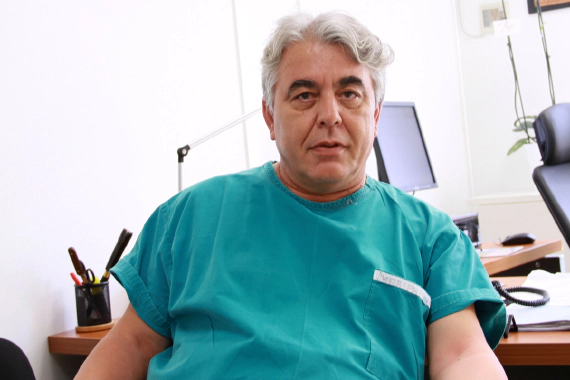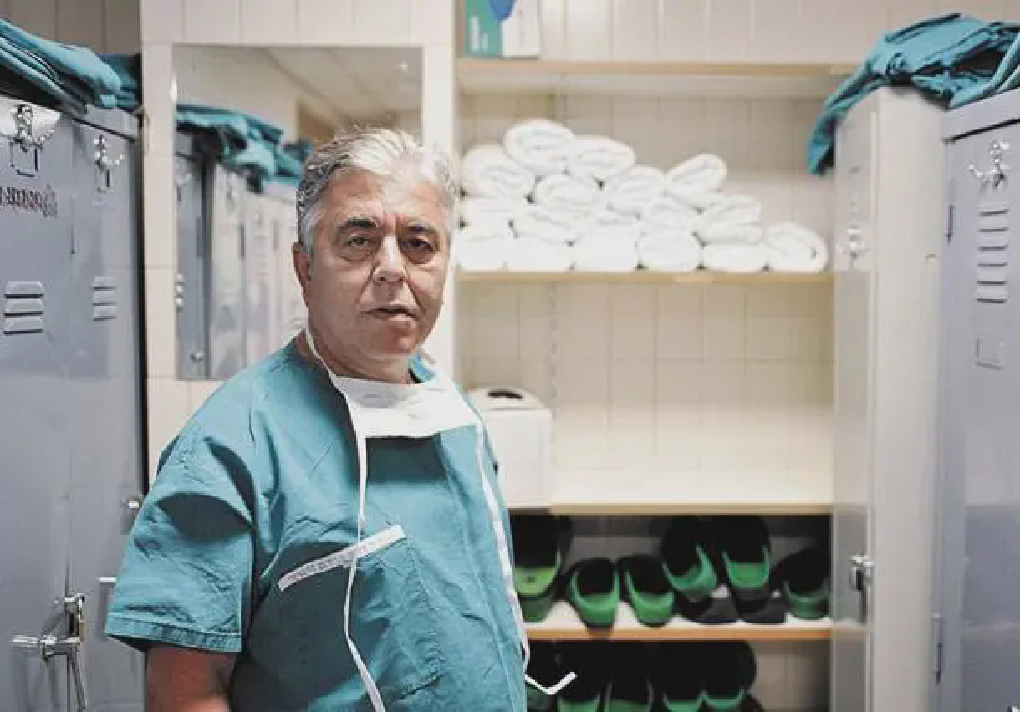
Greece, your bureaucracy: After 10,000 operations they wanted proof that he was a heart surgeon (Translation)
In Germany Andreas Bairaktaris was the head of a team of 90 scientists - In Greece he was subjected to specialty …

It reminds me of that song by Dalaras that says “who saw a boat on Helmos, in Metsovo a boat”. I knew that we Greeks have always been fugitives. And in times like this, many people want to “get away”. Many are already elsewhere. The heart surgeon Andreas Bairaktaris left one of the largest and most important hospitals in Europe and came here. “Ship to shore”. I think I’ll take a trip up the mountain and get to know him better…
He left his village, Nemea, as a 19-year-old boy for Germany in 1973, with only the clothes on his back. And he returned last October in a medical shirt and with a name that in the field of heart surgery, and especially transplantation, weighs very heavily internationally.
Fortunately, this “heavy name” is not accompanied by the attitude so familiar in the “world of professors” in general, where “do you know who I am?” is a cloud. For the past 6 months, Andreas Bairaktaris has been the director of the First Cardiovascular Surgery Clinic and the Transplant Department at the Onassis Heart Surgery Center, taking the place of Peter Alivisatos, the man who “set up” transplantation in Greece.
The decision to leave for Germany “was made in a minute”. He had a dad there, who told his sister (i.e. the doctor’s mother), “send me the child so I can keep him close to his studies”. By the time he got there, he didn’t know any German. But he took intensive lessons for a year and did well. “When you are young, you are not afraid of anything. The little German I learned, I spoke it with such confidence, as if I were Goethe!”
He finished his medical studies in 1982, and for 7 years he did general surgery. There was no “cardiac surgeon” specialty at that time. It was a sub-specialty. In 1990 he went to Germany’s largest cardiac surgery centre, Bad Oeynhausen, 70 km outside Hanover. In his department, they did 1,800 transplants, and had as many patients on mechanical heart support. On October 25, 2010, after 20 years of service, and reaching the position of deputy director, he packed up his wife, children and possessions, and came to “Greece of crisis and memorandum”.
The first impressions and experiences of his children and his German wife are excellent. “We know what kind of Greece we have come to, and we want, as much as we can, to help our country,” he says. Since 2006, the Onassis Hospital has been of interest to him. He was itching to return home, and to work at a hospital he considered a pioneer. He had the qualifications, and more than enough. He’s probably the only Greek doctor to have done so many heart transplants.
But in his decision to return, the emotional, which is probably the essential, outweighed the “formal”. “I missed Greece, even more so in its crisis, I wanted to return and, with what little I can help, to see again the light of my homeland, the faces I missed so much, and whenever I lay down to sleep, to be buried in Nemea, close to my grandfather”. Who said cardiac surgeons don’t have a heart?
In the 6 months he’s been at the Onassis Hospital, Andreas Bairaktaris has done, just a few weeks ago in fact, just two transplants, “and the patients are doing very well.” In Germany he had a year in which 148 transplants were performed in his hospital. Last year, they did almost 70. “That is - he says - every third day we did a transplant. Here in Greece, we do one transplant every third month.”
He tells us about the giant strides that have been made in heart transplants - he has a Greek former heart patient, from Nemea in fact, who has been living for 20 years with a “foreign” heart, and “it’s great”. And his aunt Katina, if the knowledge and “weapons” were available back then, he would have saved her…
But he is very saddened by “the poverty of Greece” and organ donation. We are, here too, the tail end of Europe. Unable to give a logical explanation, he recounts a terrible incident.
“I had a female patient, 35 years old. She was on life support waiting for a donor, but there was no one, and as is often the case she suffered complications, went into a coma, and ended up in brain death. I then asked her parents, who prayed every day for a donor for their child, if they would agree to donate her organs, such as her liver and kidneys, to other patients, and they, very categorically, said ’no’. I can’t explain it.”
His vision is to do, he says, at least 30 transplants a year. The bill under discussion, which would make all citizens donors, except those who declare in writing that they do not wish to be donors, he believes that “unfortunately it cannot be implemented in Greece”. Just as no law is applicable here. At the same time, he points out that there are also many doctors who do not consider brain death as a criterion for organ donation, and do not help relatives to make the decision to let their person go, giving life to others.
As he tells us about the case of the 19-year-old who is now recovering with a “new” heart, Mr. Bairaktaris also shows us the machine that, due to the patient’s advanced heart failure, kept him alive for about two years until a donor was found.
This machine, made in America, of the Heart Ware brand, is used in many hospitals worldwide. “In Germany we were buying it for 70,000 euros, while at the Onassis Hospital it costs, the exact same machine, 206,000 euros. Don’t you think someone is taking a kickback from it?” he asks us. “When I asked the representative why such a difference, he seemed annoyed, and replied that it’s because the hospitals owe him a lot,” he continues. But we all know that overbilling has always been done. Just as we all know, adds Mr. Bairaktaris, that many people are “complicit” in these overcharges.
We ask him “are you not afraid to say this?” His answer is as clear as the look on his face: “I came here to do a job. I will not even enter into the process of envelopes, fees, or triple fees. When I took over, I knew how to handle this thing. The problems were created by those who ran the hospital. Such a generous donation was made by their shops.”
By Christos Michaelides.

In Germany Andreas Bairaktaris was the head of a team of 90 scientists - In Greece he was subjected to specialty …

Cardiologist Andreas Bairaktaris, Doctor of Medicine at the University of Bochum, is currently Director of …